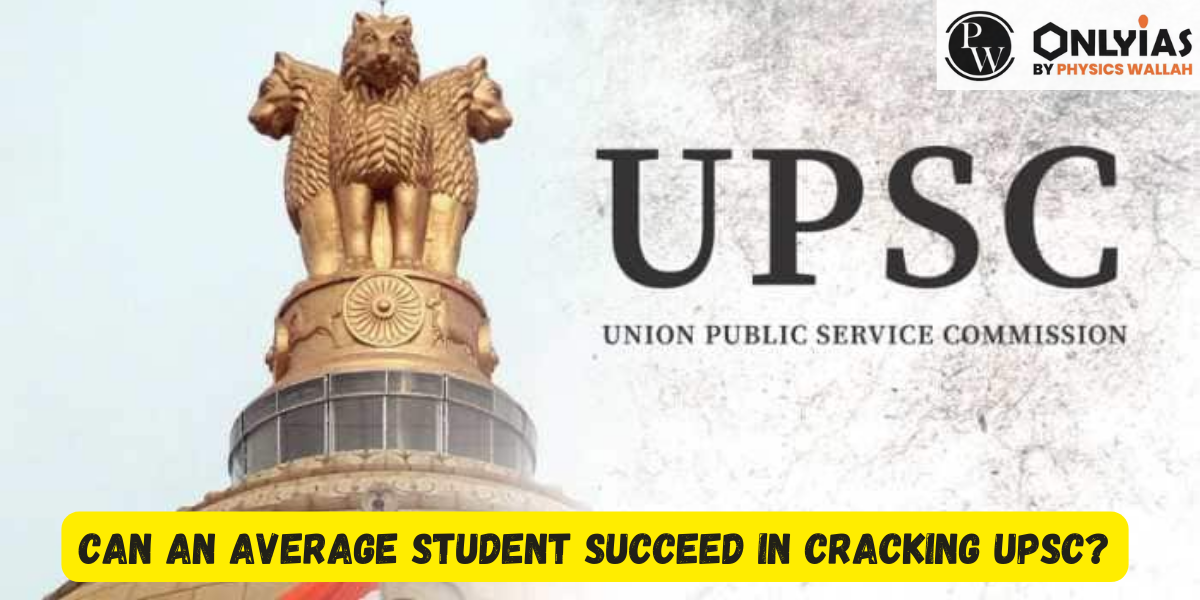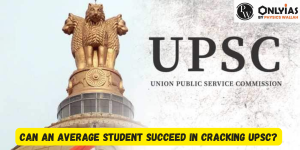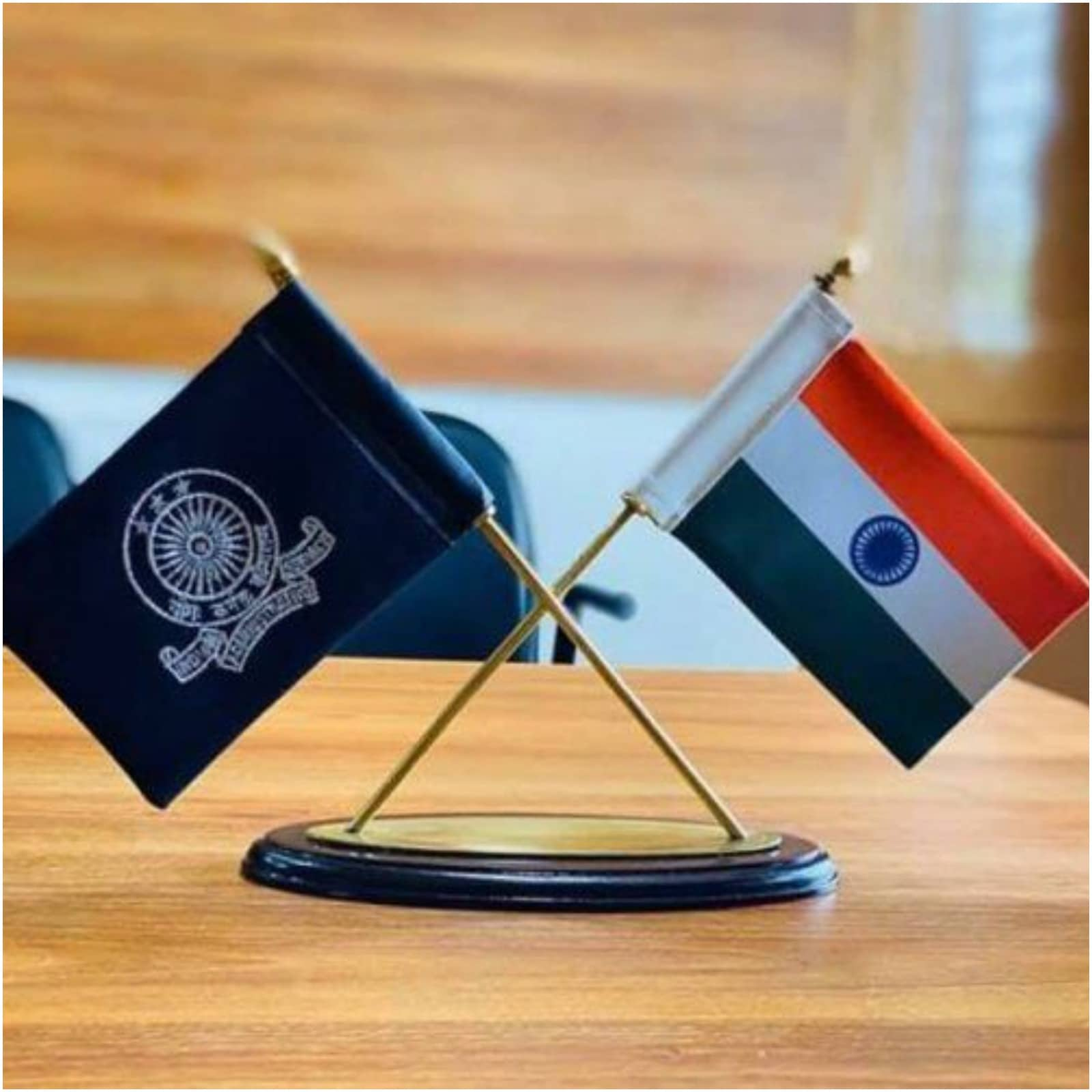
This year’s UPSC prelims examination is scheduled to be held on 26 May, 2024. UPSC is widely recognized as one of India’s most rigorous and esteemed competitive tests. Cracking UPSC is one of the most difficult tasks. Numerous aspiring civil servants from diverse backgrounds aspire to succeed in this formidable exam. However, average students often find themselves grappling with self-doubt. This article aims to shed light on the potential of an average student to overcome challenges and triumph in cracking the UPSC.

With the appropriate mindset, strategies, and consistent efforts, even an average student can surmount obstacles and attain their aspiration of a civil services career. Individuals aspiring for civil services hail from various walks of life, and while the journey is demanding and necessitates dedication, closer examination reveals that triumph in the UPSC exam is not confined to academically extraordinary individuals.
Several pivotal attributes play a role in determining a candidate’s success in the UPSC exam. These traits encompass both mental and strategic aspects:
1. Mindset Matters While academic excellence is valuable, it is by no means the sole arbiter of success in the UPSC exam. An average student can foster a growth mindset, embracing the belief in their capacity to learn and advance over time. Qualities such as maintaining a positive outlook, self-assuredness, and resilience are pivotal in tackling the challenges posed by the UPSC examination.

2. Strategic Preparation Effective preparation is indispensable for all UPSC aspirants, including average students. Devising a comprehensive study plan and adhering to it is essential.
3. Consistency and Discipline Cracking the UPSC exam necessitates sustained effort and discipline—attributes well within the grasp of average students.
4. Effective Time Management Skillful time management is integral to UPSC preparation, and this is an area where average students can excel.
5. Optimal Resource Utilization Average students can certainly succeed in cracking the exam by maximizing available resources.
Achieving success in the UPSC exam demands self-confidence, dedicated effort, and unwavering perseverance. Even individuals categorized as average students can realize their aspiration of cracking the UPSC exam by embracing the following guidelines. It’s important to tailor these strategies to your individual learning style and specific needs.
1. Grasp the Exam Pattern and Syllabus: Understanding the exam pattern, including section distribution, question types, and scoring scheme, is pivotal.
2. Craft an Organized Study Plan: Formulating a meticulous study plan serves as a roadmap to navigate the preparation journey.
3. Delve into Recommended Books and Resources: Consult the recommended UPSC textbooks and supplementary resources aligned with the exam’s scope.
4. Stay Abreast of Current Affairs: Maintain current affairs awareness by staying informed about both domestic and global events.
5. Craft Concise and Systematic Notes: Develop succinct, systematically organized notes during your study sessions.
6. Hone Answer Writing under Time Constraints: Regularly practice writing answers within stipulated time limits.
7. Engage in Mock Tests and Prior Years’ Papers: Participate in mock tests and solve previous years’ question papers to gauge your progress.
8. Explore Coaching Institutes and Study Groups: Consider enrolling in a coaching institute or joining a study group.
9. Dedicate Time to Regular Revisions: Regular revisions are indispensable for retaining newly acquired knowledge. Allocate specific time slots within your study plan for comprehensive reviews.
10. Identify Weaknesses and Focus on Enhancement: Regularly assess your performance to pinpoint areas needing improvement. Devote additional time to fortifying these weaknesses.
The journey to success is not confined to academic brilliance; it’s defined by meticulous planning, disciplined execution, and continual self-improvement. Irrespective of being labeled as an average student, your dedication and strategic approach can propel you toward your goal of cracking the UPSC exam and realizing your aspiration of civil service.

Passion
Your genuine interest in your pursuit is a fundamental factor. Recall your high school days when you excelled in certain subjects due to your curiosity. Genuine interest initiates learning. Likewise, fostering a true interest in civil services is crucial. It should embody YOUR GOAL, YOUR AMBITION, and YOUR DREAM – not influenced by external factors.
Consider Ajay Prakash, the 2010 9th rank holder in the UPSC civil services exam, who chose science despite his literary inclinations. Consequently, his class XII scores were ‘average’ at 78%, and he faced setbacks in IIT-JEE and AIEEE. However, following his passion changed his trajectory.
Dedication
Once your goals are set, dedicated preparation is paramount. A deep commitment and sincerity are essential. The extensive UPSC syllabus necessitates rigorous study over nearly a year to secure success. Embrace a robust work ethic, resisting distractions and temptations along the way.
Conclusion
The notion that only academically exceptional individuals can crack the UPSC exam is an oversimplification. Average students possess unique qualities that, when coupled with the right approach and diligent efforts, can propel them towards success. It’s vital to recognize that the journey toward triumph is not solely about academic brilliance; it’s about holistic growth, determination, and the pursuit of a noble goal – serving the nation.
This belief is nothing more than a misconception. If you're wondering, "Can an average student crack IAS?" the answer is a resounding YES! We bring forth several success stories of aspirants who were deemed "average" students, yet triumphantly cleared the exam, showcasing that being a top scorer is not a prerequisite to crack the IAS Exam.
Mathematics is a requisite for the Preliminary CSAT Exam, with candidates needing to attain a minimum of 33% to pass. However, mathematics is not obligatory for the UPSC Mains.
Awanish Sharan hailed from a modest, low-income middle-class family. During his early years, he pursued studies illuminated by lantern light. He maintained an average academic performance throughout classes 10 and 12, a fact he never feels embarrassed about.
From Underprivileged Background to Achieving IIT and UPSC Success: Introducing IAS Vishal Kumar, Raised by a Resilient Single Mother. Vishal Kumar, an alumnus of IIT Kanpur, achieved an impressive AIR-484 in the UPSC examination. Despite the loss of his father, a construction laborer who passed away during his Grade 9, Vishal was consistently inspired by his father's words to alter his destiny through diligent studies.
Conversely, social media witnessed an outpouring of empathy for individuals who did not succeed in the UPSC CSE examination. Annually, around 1 million candidates participate in the UPSC mains, and among them, less than 0.1% achieve successful outcomes.
<div class="new-fform">
</div>